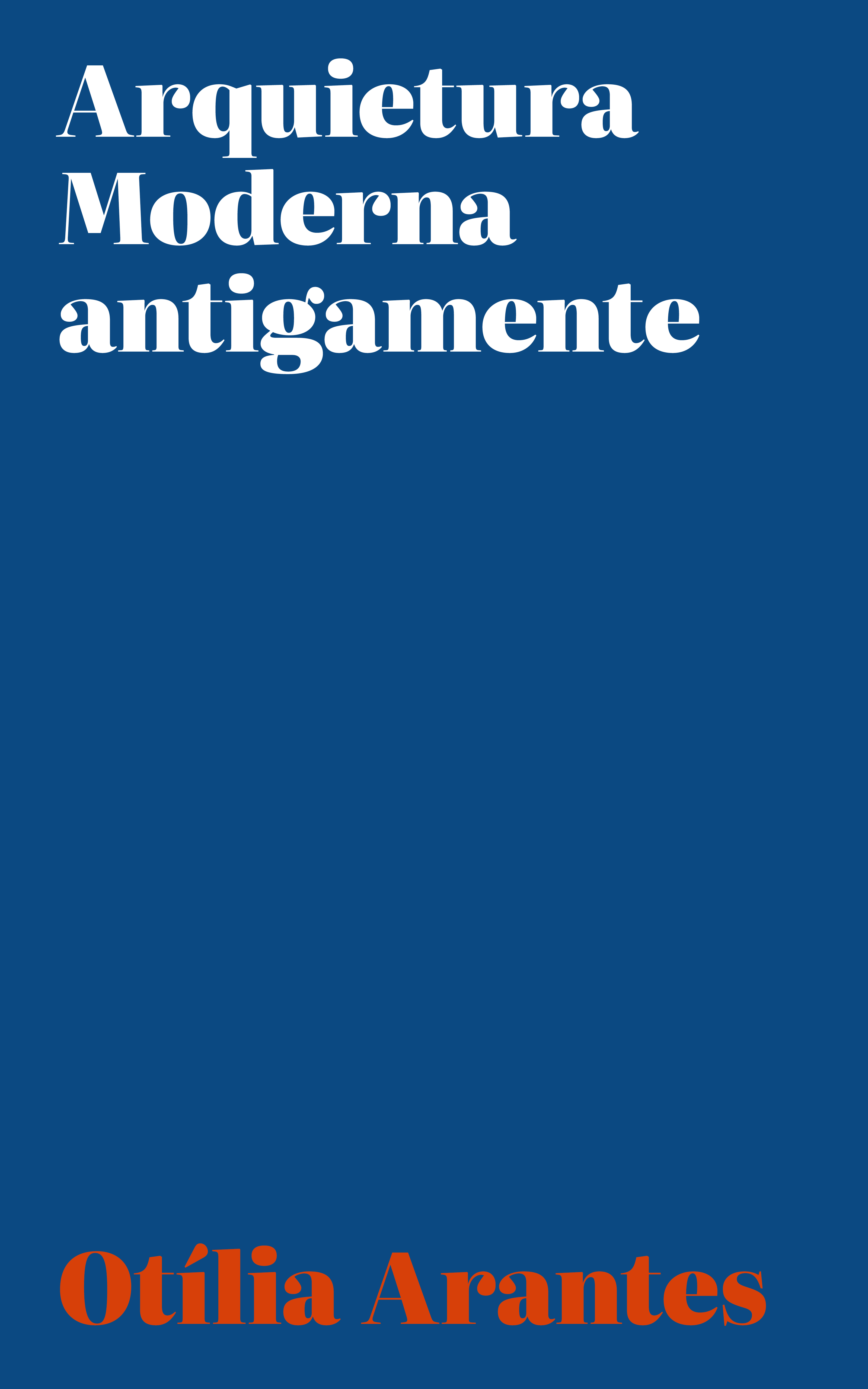Modern Architecture in the Old Days
1996
Synopsis
The texts gathered here—essays, conferences, and interviews—from the late 1980s and early 1990s summarize the author's account-settling position towards the surprising and more than extemporaneous defense of Modern Architecture, so to speak, at the end of the Enlightenment Project era, originally presented by Jürgen Habermas and subsequently replicated among us by architects and architectural theorists, according to which, freed from its functional overload, the New Construction would survive as the matrix of Western Rationalism. On the countercurrent, this collection opens with a 1988 conference where Otília sought to demonstrate, for the first time (the argument would be developed later, in a book and other essays), that the aging of the Modern Movement and its corresponding loss of social voltage was structural. The central motto, that Modern Architecture had been exhausted not by detours or setbacks, but by the very execution of its program—that is, it had not been neutralized because times changed, but because it fulfilled its promise, due to its strict fidelity to the principle of progressive rationalization, the same absolute rationalization that defines the social logic of the capitalist order—is resumed in subsequent texts: responding to Roberto Schwarz's objections and, in an interview given to Architecture students, refuting the dissociation in Anatole Kopp’s argument, according to which Modern Architecture should be understood more as a cause than as a style.
There are two conferences that continue this discussion. The first one questions Philip Johnson's maxim that was adopted by postmodernists: “we love history while the moderns hated it”. The second one diverges from the attempt to frame the specificities of Brazilian Modern Architecture in some kind of Critical Regionalism.
To illustrate her arguments, Otília analyzes Brazilian Modern Architecture based on three of its greatest exponents, Oscar Niemeyer, Lúcio Costa, and Paulo Mendes da Rocha, presenting as well as problematizing the point of view of Mário Pedrosa, a quintessentially Modern critic, or Lúcio Costa himself with regard to the “formation” of this architecture. Finally, we added a brief digression in which the author questions the so-called neomodern or “minimalist” phase in Paulo Mendes da Rocha’s work.
Keywords: Adorno, Anatole Kopp, Modern Architecture, Postmodern Architecture, Brazilian Modern Architecture, Brasilia, Constructivism, Corbusier, Habermas, History, Ideology, Lúcio Costa, Mário Pedrosa, Mies van der Rohe, Minimalism, Oscar Niemeyer, Paulo Mendes da Rocha, Critical Regionalism, Postcritical Regionalism, Roberto Schwarz, Theo van Doesburg.

Series
Categories
License

This work is licensed under a Creative Commons Attribution-NonCommercial-NoDerivatives 4.0 International License.


